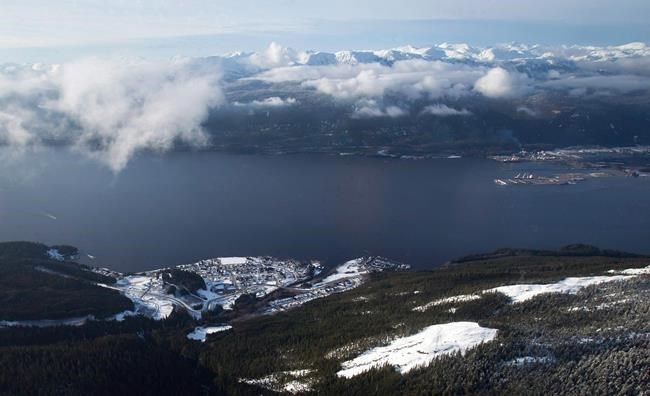A group of B.C. First Nations have launched a consortium to deliver natural gas to markets powered by coal.
A memorandum of understanding signed by leaders of the Lax Kw’alaams Band and Metlakatla First Nation, and the Haisla and the Nisga’a Nations describes a collaboration for the management, construction and ownership of “new energy supply infrastructure,” including pipelines and terminals.
It was made official Wednesday at the World Indigenous Business Forum in Vancouver.
The Northwest Coast First Nations Collaborative Climate Initiative is a climate policy aimed at maximizing Canada’s impact of global climate change by displacing coal-fired power generation in the “most polluting jurisdictions of the world,” according to a statement.
The First Nations-owned businesses that result will deliver “gas products from B.C., gas that has the lowest carbon footprint of any produced in the world.” The industrial processes are to be powered by electricity from renewable sources.
They also hope that Canada will get credit for the reduction of emissions when B.C. natural gas is burned in place of higher-carbon alternatives, under Article 6 of the Paris Accord.
“British Columbia gas products will be delivered by and through First Nations territories and businesses in a manner that maintains the highest environmental standards while contributing to First Nations economic self-determination and the alleviation of poverty,” the statement reads.
The First Nations are working with the B.C. government to plan and construct the electrification infrastructure required for the project, according to Mayor John Helin of the Lax Kw’alaams.
“We could eliminate more than all the greenhouse gases produced in B.C. in one year [64 million tonnes[ if we used the gas from a single medium-to-large electrified LNG plant to replace coal-fired generation in Asia,” said Chief Coun. Crystal Smith of the Haisla Nation.
The Haisla Nation has already secured a 25-year export licence from the National Energy Board and proposed a floating LNG facility south of Kitimat.



